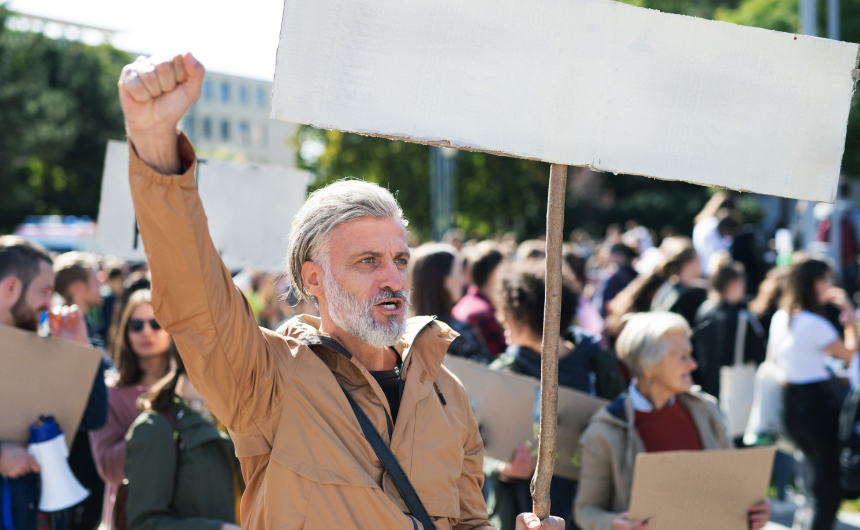SAG-AFTRA Strike: A Stand Against AI in Video Game Voice Acting
On Sunday, SAG-AFTRA, the union representing voice actors in the video game industry, initiated a strike following unsuccessful negotiations with major gaming studios regarding the integration of artificial intelligence (AI) in voice performances. This action has led to a significant halt in video game production for many high-profile titles, as voice talent rallies against what they perceive as exploitative practices arising from the rapidly evolving digital landscape.
Core Concerns Around AI and Voice Performance
Central to the dispute is the apprehension that AI-generated voice models could potentially replace human actors without their consent or appropriate compensation. Union representatives have been vocal about the inadequacy of current contracts, which they argue do not provide sufficient safeguards against unauthorized replication of voice work. As AI technology advances, the risk of infringing on creative rights and the value of human artistic expression becomes a pressing issue within the digital entertainment industry.
Support from Prominent Voice Actors
Several influential voice actors have publicly expressed their support for the strike, underscoring the critical necessity of maintaining artistic integrity and the uniquely human elements that characterize voice performance. These professionals advocate that while AI technology may enhance production efficiency, it should not serve as a means to circumvent the contributions made by creatives or diminish their fair compensation. By standing united, these actors aim to ensure that their craft is respected and adequately rewarded in the evolving landscape of entertainment.
Negotiation Standoff and Industry Implications
Negotiations are expected to resume later this week between SAG-AFTRA and game developers; however, the atmosphere remains tense. The strike has not only affected individual projects but has also catalyzed a broader discussion regarding the ethical implications of AI usage across various sectors in the entertainment industry. Stakeholders are increasingly recognizing the need for a dialogue that balances technological advancement with respect for artists and their contributions.
Wider Conversations on AI Ethics
As the strike unfolds, it echoes similar concerns raised in other segments of the entertainment world. Various stakeholders have begun to examine the inherent ethical dilemmas presented by AI technologies. Production companies, directors, and actors alike are grappling with the question of how to leverage these tools responsibly while safeguarding the human artistry that defines the industry. Developments in this area could result in legislative changes or new contractual norms that aim to protect individual creativity and fair treatment.
Potential Outcomes and Future Developments
Looking ahead, the outcome of the ongoing negotiations holds significant implications not just for voice actors but for the entire video game development landscape. If successful, a resolution could lead to a reevaluation of existing contracts, establishing a framework that better accommodates technological advancements while protecting artists’ rights. This precedent could set the stage for similar discussions taking place across various sectors facing the rise of AI.
Conclusion
The SAG-AFTRA strike represents a pivotal moment in the video game industry and the broader realm of entertainment as it grapples with the challenges posed by artificial intelligence. As discussions resume, the stakes are high for voice actors, developers, and the future of artistic collaboration. This situation serves as a reminder of the importance of maintaining a balance between technological progress and the preservation of creative integrity. The outcome has the potential to reshape industry standards and set vital precedents for future interactions between AI and human artistry.
FAQs
- What is the reason for the SAG-AFTRA strike?
The strike was initiated due to failed negotiations over the use of artificial intelligence in voice performances, with concerns about AI potentially replacing human actors without consent or compensation. - What are the main concerns raised by voice actors?
Voice actors are concerned about the lack of protections against unauthorized voice replication and the potential for AI to undermine both their creative contributions and fair wages. - How has the strike impacted video game production?
The strike has resulted in a halt in production for many high-profile video game titles, affecting both the timelines of projects and the livelihoods of professionals in the industry. - What is expected to happen next in the negotiations?
Negotiations between SAG-AFTRA and game developers are set to resume later this week amidst heightened tensions, with hopes for a resolution that addresses the concerns raised by voice actors. - Are there broader implications of this strike?
Yes, this strike has ignited larger conversations about the ethical implications of AI in creative fields, prompting discussions that may influence industry standards and practices across various digital entertainment sectors.

